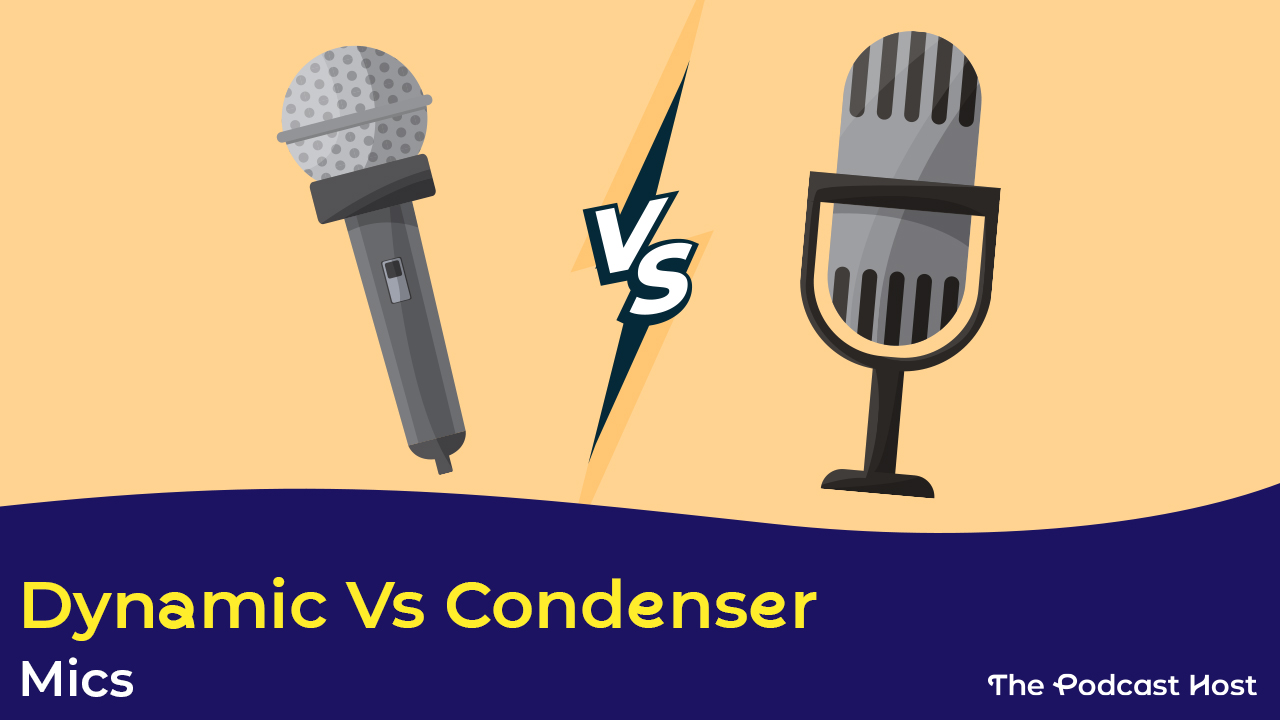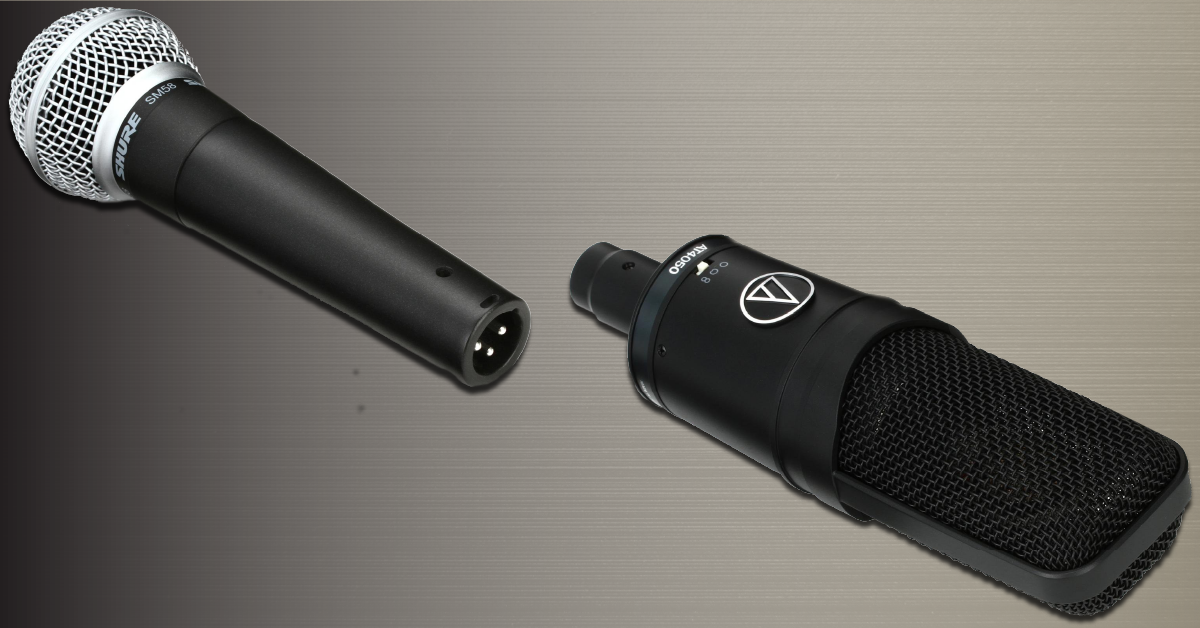Condenser Microphone vs Dynamic: Which One will be Right for You in 2024?
Confused about Condenser Mic vs Dynamic microphones? Let’s break it down simply to help you pick the perfect one for your needs!
Condenser microphones are more sensitive and offer superior sound quality, while dynamic microphones are more durable and better for live performances. When choosing between the two, consider your recording environment and intended use.
Condenser microphones function using a thin diaphragm to capture sound, making them ideal for studio recordings or capturing delicate nuances. On the other hand, dynamic microphones are sturdy and can handle high sound pressure levels, making them suitable for live performances or recording loud instruments.
Each type has its strengths, so understanding your needs is key to selecting the right microphone for your application. We will delve deeper into the differences between condenser and dynamic microphones, helping you make an informed decision.

Credit: www.thepodcasthost.com
Advantages Of Condenser Microphones
When it comes to choosing the right microphone for your recording needs, condenser microphones undoubtedly offer a multitude of advantages. These types of microphones are renowned for their high sensitivity, wide frequency response, and low noise level, making them the preferred choice for various recording applications.
High Sensitivity
Condenser microphones boast high sensitivity, which means they are capable of capturing subtle nuances and details in sound. This makes them ideal for recording vocals, acoustic instruments, and capturing delicate audio textures with exceptional clarity and precision.
Wide Frequency Response
One of the key advantages of condenser microphones is their wide frequency response. This feature allows these microphones to accurately capture a broader range of frequencies, resulting in a more natural and detailed sound reproduction. Whether you are recording vocals, instruments, or ambient sounds, condenser microphones deliver a full and authentic audio representation.
Low Noise Level
In addition to their high sensitivity and wide frequency response, condenser microphones are prized for their low noise level. This characteristic ensures that the recorded audio is free from interference and unwanted background noise, producing clean and pristine recordings.
:max_bytes(150000):strip_icc()/Condenser-vs-Dynamic-Mic-91adb5747e63442a9e6bea7cda2e27e8.jpg)
Credit: www.lifewire.com
Advantages Of Dynamic Microphones
Dynamic microphones excel in durability and versatility, making them ideal for live performances and recording in noisy environments. Their robust build and high sound pressure handling provide a reliable option for various applications, effectively capturing sound with a distinct warmth and richness.
Advantages of Dynamic Microphones Dynamic microphones have several key advantages that make them a popular choice in various audio recording and live sound applications. Durability Dynamic microphones are known for their robust construction, with a sturdy design that can withstand rough handling and environmental conditions.
Suitable for high sound pressure levels Dynamic microphones are ideal for capturing loud sound sources, making them suitable for recording live music performances or amplifying instruments.
Inexpensive Dynamic microphones are cost-effective options for those on a budget, offering reliable performance without breaking the bank. Durability One of the primary advantages of dynamic microphones is their durability, making them resistant to damage from accidental drops or impacts.
Suitable for high sound pressure levels Dynamic microphones excel at handling high sound pressure levels, making them perfect for capturing loud sources like drums or guitar amplifiers. Inexpensive Dynamic microphones are budget-friendly options, providing excellent sound quality at an affordable price point compared to condenser microphones.

Credit: www.sweetwater.com
Frequently Asked Questions Of Condenser Microphone Vs Dynamic
Which Is Better Condenser Or Dynamic Mic?
Condenser mics are better for capturing detail and nuance, while dynamic mics are more rugged and versatile for live performances. Each has its strengths, so consider your specific needs.
Do Singers Use Dynamic Or Condenser Mics?
Singers typically use both dynamic and condenser mics depending on their preferences and the situation. Dynamic mics are popular for live performances due to their durability and ability to handle high sound levels. On the other hand, condenser mics are commonly used in studios for their precision and sensitivity to capture subtle nuances in vocals.
Does A Condenser Mic Make You Sound Better?
Yes, a condenser mic can enhance your sound quality due to its sensitivity and ability to capture detailed vocals.
What Are The Disadvantages Of A Condenser Microphone?
Condenser microphones are sensitive to handling noise and require phantom power. They can be more expensive than dynamic microphones. They are also more delicate and can be easily damaged. Additionally, condenser mics are not ideal for high-volume sound sources.
Q: Which Microphone Is Better, Condenser Or Dynamic?
A: Both microphones have distinct advantages. Condenser mics offer sensitivity and accuracy, while dynamic mics excel in durability and handling high sound levels.
Q: Are Condenser Microphones More Suitable For Vocals?
A: Yes, condenser mics are highly sensitive and capture vocal nuances with exceptional clarity, making them ideal for recording vocals.
Q: Can Dynamic Microphones Handle Loud Sound Sources?
A: Absolutely! Dynamic microphones are designed to handle high sound pressure levels, making them perfect for live performances and loud instruments.
Q: Are Condenser Microphones More Expensive Than Dynamic Ones?
A: Generally, condenser mics tend to be more expensive due to their advanced technology and intricate design, but affordable options are also available.
Q: Which Microphone Type Is More Durable?
A: Dynamic microphones are exceptionally durable due to their robust construction, making them ideal for frequent touring and outdoor use.
Q: Can I Use A Condenser Microphone For Podcasting?
A: Definitely! Condenser mics capture vocals with clarity, making them popular among podcasters for their ability to deliver professional-quality sound.
Conclusion
After weighing the benefits and drawbacks of condenser microphones and dynamic microphones, it’s clear that each has its own strengths. Understanding your specific audio recording needs will help in determining which type of microphone suits you best. Both condenser and dynamic microphones have their unique features and applications, and choosing the right one can make a significant difference in your recording quality.
